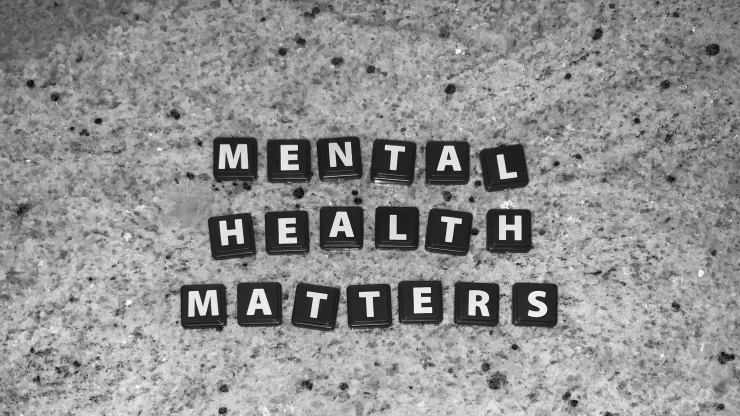Jump to Section
Understanding Personal Growth and Well-being
Personal growth is the process of continuous self-improvement, where individuals develop their skills, knowledge, and emotional intelligence to reach their full potential.
It is an ongoing journey that requires self-awareness, self-reflection, and a willingness to change. Personal growth is closely linked to well-being, which is the state of being happy, healthy, and fulfilled in life.
When we focus on personal growth, we can enhance our well-being and cultivate a happier and more meaningful life.
The Benefits of Personal Growth for Happiness
Personal growth has numerous benefits for happiness and well-being. Here are some of the most significant ones:
- Increased self-awareness: Personal growth helps us understand ourselves better, including our values, beliefs, and emotions. This self-awareness enables us to make better decisions, improve our relationships, and find more meaning in life.
- Improved resilience: Personal growth helps us develop resilience, which is the ability to bounce back from adversity. When we face challenges, we can use our personal growth skills to cope with stress, manage our emotions, and find solutions to problems.
- Greater fulfillment: Personal growth helps us pursue our passions, set meaningful goals, and achieve our full potential. This sense of fulfillment can lead to greater happiness and satisfaction in life.
Overcoming Obstacles to Personal Growth
Personal growth is not always easy, and there can be obstacles that get in the way. Here are some common challenges and how to overcome them:
- Fear of change: Many people fear change and may resist personal growth because of it. To overcome this, start small and take small steps towards your goals. Celebrate your successes along the way, and remember that change is a natural part of life.
- Lack of motivation: Sometimes, we may lack motivation or feel stuck in our personal growth journey. To overcome this, find a mentor or accountability partner who can support and motivate you. Also, try to break down your goals into smaller, achievable steps.
- Negative self-talk: Negative self-talk can be a significant barrier to personal growth. To overcome this, practice self-compassion and focus on your strengths and accomplishments. Challenge negative thoughts with positive affirmations and surround yourself with positive people.
Strategies for Cultivating Personal Growth
Here are some strategies that can help you cultivate personal growth:
- Practice mindfulness: Mindfulness is the practice of being present and aware of your thoughts, feelings, and surroundings. It can help you become more self-aware and develop emotional intelligence.
- Read and learn: Reading and learning can help you gain new knowledge and skills. It can also inspire you to pursue new interests and passions.
- Seek feedback: Feedback from others can help you identify areas for improvement and growth. Be open to constructive criticism and use it to enhance your personal growth journey.
- Set goals: Setting goals can help you stay motivated and focused on your personal growth journey. Make sure your goals are specific, measurable, achievable, relevant, and time-bound.
Integrating Personal Growth into Daily Life
Integrating personal growth into daily life requires commitment and consistency. Here are some tips to help you make personal growth a habit:
- Schedule time for personal growth: Set aside time each day or week for personal growth activities, such as reading, learning, or practicing mindfulness.
- Surround yourself with growth-minded people: Surround yourself with people who support and encourage your personal growth journey.
- Practice self-reflection: Regularly reflect on your progress, challenges, and successes. Use this reflection to adjust your goals and strategies as needed.
- Embrace discomfort: Personal growth often requires stepping outside your comfort zone. Embrace discomfort and be willing to take risks and try new things.
The Long-Term Effects of Personal Growth on Well-being
Personal growth can have long-term effects on well-being, including:
- Increased happiness and life satisfaction
- Improved mental and physical health
- Greater resilience and coping skills
- Enhanced relationships and social support
- More fulfilling and meaningful life experiences.
By continuously cultivating personal growth, individuals can enhance their overall well-being and lead happier, healthier, and more fulfilling lives.
FAQ
What are some examples of personal growth activities?
Personal growth activities include reading, learning, practicing mindfulness, seeking feedback, setting goals, trying new experiences, and stepping outside your comfort zone.
How can I overcome fear of change in my personal growth journey?
To overcome fear of change, start small and take small steps towards your goals. Celebrate your successes along the way, and remember that change is a natural part of life.
You can also seek support from a mentor or accountability partner.
What are some benefits of personal growth for relationships?
Personal growth can lead to improved relationships by enhancing communication skills, empathy, and emotional intelligence. It can also help individuals develop stronger social support networks and cultivate more fulfilling relationships.

With a deep passion for personal development, Ben has dedicated his career to inspiring and guiding others on their journey towards self-improvement.
His love for learning and sharing knowledge about personal growth strategies, mindfulness, and goal-setting principles has led him to create My Virtual Life Coach.
Contact Ben at [email protected] for assistance.




